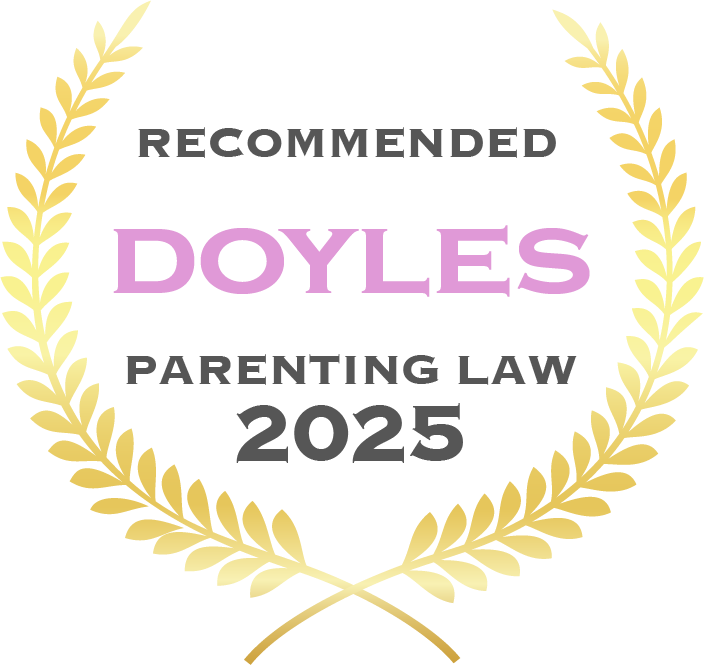
Adelaide Family Lawyers for Children’s Issues
Our Adelaide family lawyers are here to help you during this difficult time and are committed to achieving a successful outcome for you. We are one of a few firms in South Australia to offer fixed fee services for children’s matters. With more than 27 years of experience we can help you come to the best arrangements for your children. We appear in all levels of court and want you to know that you have the best family lawyers in Adelaide on your side.
In the event of separation or divorce, the welfare of your children is the primary concern. If you are unable to resolve custody issues by out of court mediation, you will find yourself in the family court system. This can be time consuming and expensive.
How can a Family Lawyer Help you?
We understand this is an incredibly emotional time for you and provide a free no obligation 30 minute consultation. Our male and female family lawyers are compassionate and dedicated to achieving the best outcome for you and your family. Contact our Adelaide Family Lawyers for help with:
- Parenting orders;
- Parenting plans;
- Consent orders;
- Recovery & location orders;
- Relocation; and
- Child support.
In the event of separation or divorce, the welfare of your children is the primary concern. If you are unable to resolve custody issues by out of court mediation, you will find yourself in the family court system. This can be time consuming and expensive and is usually the last resort.
Helpful Questions & Answers
Heading 1
Heading 2
Heading 3
Heading 4
Heading 5
Heading 6
Lorem ipsum dolor sit amet, consectetur adipiscing elit, sed do eiusmod tempor incididunt ut labore et dolore magna aliqua. Ut enim ad minim veniam, quis nostrud exercitation ullamco laboris nisi ut aliquip ex ea commodo consequat. Duis aute irure dolor in reprehenderit in voluptate velit esse cillum dolore eu fugiat nulla pariatur.
Block quote
Ordered list
- Item 1
- Item 2
- Item 3
Unordered list
- Item A
- Item B
- Item C
Bold text
Emphasis
Superscript
Subscript
Parenting Orders
If you and your ex-partner disagree about parenting arrangements, you may apply to the court to decide. The court will set out each party’s parental responsibilities and arrangements for your children. The orders specify what both parents must do. Breaching a parenting order may result in serious penalties. This depends on the seriousness of the contravention. If you wish to apply for a parenting order, or modify an existing parenting order, you must attend family dispute resolution with your ex-partner. Once you have attended family dispute resolution, you will receive a certificate confirming attendance. However, this is not required in cases of family violence or child abuse. A wide range of individuals may apply for parenting orders including:
- A grandparent;
- An aunt or uncle;
- New partners of either parent.
Parenting Plans
If you and your ex-partner agree about parenting arrangements, you can make a parenting plan instead of applying for consent orders. This is a less formal way of agreeing in writing about arrangements for your kids. Unlike court orders, there are no forms to fill out. You also do not have file it in court. Parenting plans can vary in detail and length. The most important thing to get right is that your agreement is clear. Parenting plans may be easily changed as long as both people agree without court involvement. An agreement can only reached if it is free from coercion, duress or threats. The important thing to remember is that parenting plans are not court orders. So, if you break a parenting plan you are not breaking the law. However, if you make a parenting plan and break it, your ex-partner may take you to court. You will asked why you broke the parenting plan and the court may make orders that are more restrictive than the parenting plan. The Family Law Act sets out details about parenting plans in Sections 63C, 64D, 65DA and 70NBB.
If your Child is Taken Interstate
If your child is taken interstate without your consent, you will have to travel interstate at your own expense before the recovery order is executed. This is because the police will not normally execute a recovery order unless you are with them at or near the place where the child is to be recovered. If you lack the resources to make the journey, you may seek emergency financial assistance from the Department for Child Protection.
Child Support Maintenance
Our dedicated family lawyers adopt a nonsense approach in all negotiations and will ensure that not only are your children provided for, but that you receive the best legal outcome. We will make sure the right amount of child support is paid, in what form, and how it should be paid.
The Australian Child Support Scheme ensures that both parents contribute to the cost of raising a child. As a parent or guardian, you have a duty to provide for your children even if you are not married or living together. The Australian Child Support Scheme is administered through the Child Support Agency. In calculating child support, a complex formula is used which takes into consideration many factors including:
- The amount of time each parent spends with the child
- The income of each parent
- The number of children involved
- The age of the children involved
- If the parent has a second family
If you do not wish to have the Child Support Agency involved, we may help you come to a private arrangement with your ex-partner.
How Long Does a Parenting Order Last?
Orders cease when the child turns 18, is adopted, enters into a de facto relationship or marries. Orders may be varied at any time by consent or if there is a significant change in the parents or child circumstances.
What if my Child Does Not Want to Visit Me/Their Other Parent?
If there are court orders in place and your child refuses to visit their other parent, you have a duty to encourage them as it is in their best interest. However, if you believe spending time with the other parent places the child at risk of physical or psychological harm; you should seek immediate legal help as well as contacting the police.
Consent Orders
If you and your ex-partner agree about parenting arrangements, you may apply to the court for orders to be made by agreement. This is known as a consent order. A consent order sets out what both parents must do. This is no different than attending court, arguing your case and the court making a decision. Therefore, breaching a consent order carries the same consequences as breaching a parenting order. Normally, consent orders are made between parents. However, grandparents and other relatives may also make consent orders about children who are related to them.
Location & Recover Orders
You may apply for location and recovery orders where you are prevented from having contact with your children. This occurs where the other parent has taken your child without disclosing their location. We understand this can be especially frightening and we are committed to helping you recover your children by applying to the court for location and recovery orders. A location order compels anybody with knowledge of your ex-partner’s whereabouts disclose this information to the court. Location orders can be made to obtain information from Centrelink, the ATO, banks and other third parties.
Once your child’s location is discovered, we can help you apply for a recovery order. It’s important to remember that the court is not a child recovery agency. If the court makes an order authorising or directing another person or persons to find, recover and deliver the child, you must give a copy of the order to that person or persons. In most instances, this will be the Australian Federal Police (AFP). We will help you throughout this process.
If Your Child is Taken Overseas
Australia is a signatory to the Hague Convention. The Hague Convention provides a process through which a parent can seek to have their child returned to their home country from another member country. For a list of member nations, click here. Stanley & Co Lawyers understand the key requirements and criteria for making applications to the Family Court of Australia under the Hague Convention as well as dealing with international authorities and jurisdictional hurdles in a variety of countries around the world.
What if a Parent Wishes to Relocate?
It is common for one or both parents to wish to relocate after separation. This is less problematic when relocation does not affect existing or proposed arrangements for children. If you or your ex-partner is considering relocation, it is important to seek legal advice. If one parent relocates without the consent of the other, they may apply to the court for an order that the child be returned. The order will be granted if the court determines it is in the child’s best interests. If you wish to relocate with your children, we recommend obtaining the other parent’s consent and a court order permitting relocation first. If permission is not granted, we will assist you by applying to the court for permission.
Do Children Have to Spend Equal Amounts of Time with Each Parent?
Parents have shared parental responsibility for their children unless the court orders otherwise. This does not mean children have to spend an equal amount of time with either parent. However, the court will consider this. The primary consideration is always what is in the best interest of the child. In some cases, this means equal time, or substantial time, or some other amount of time.
27
Combined Years Of Experience
Awards & Affiliations







.png)




.png)


.png)


.png)








